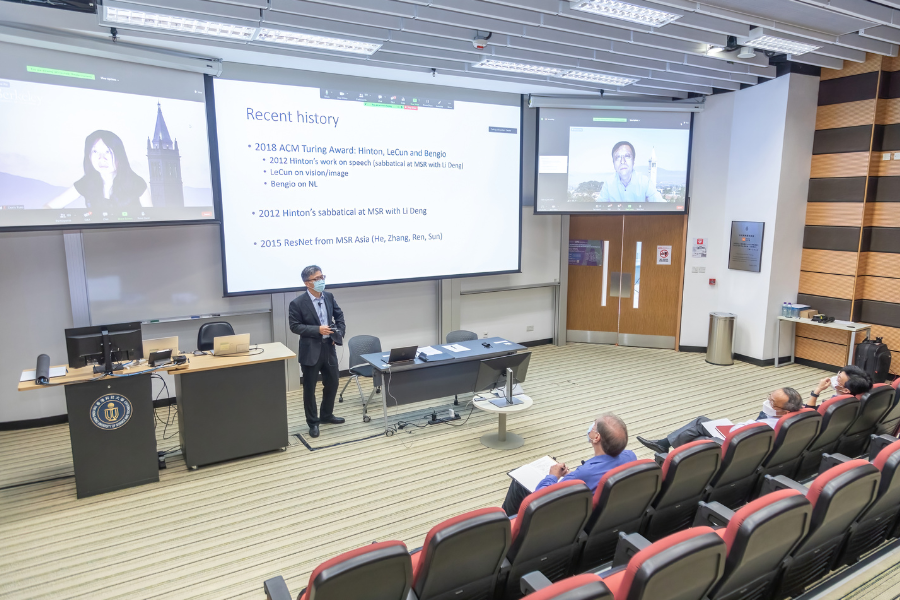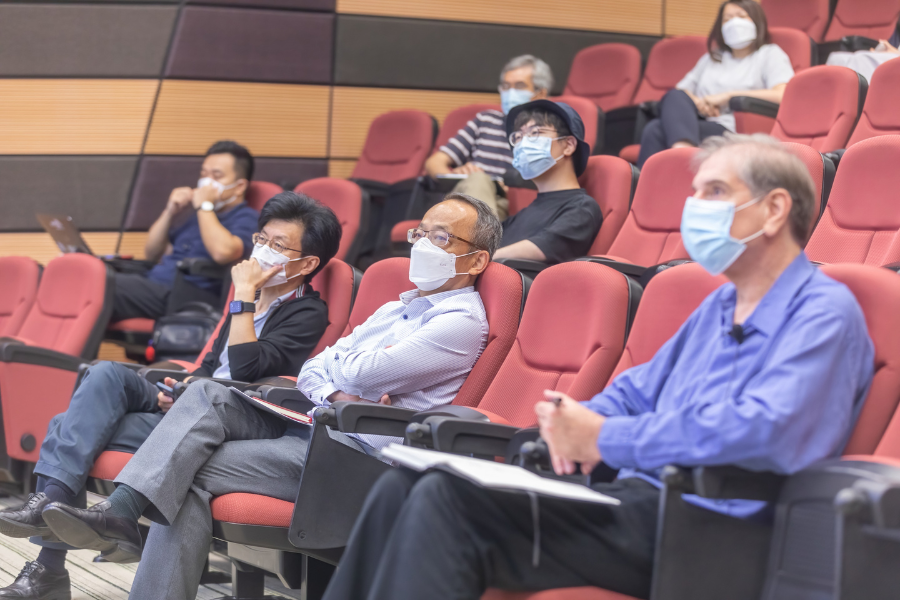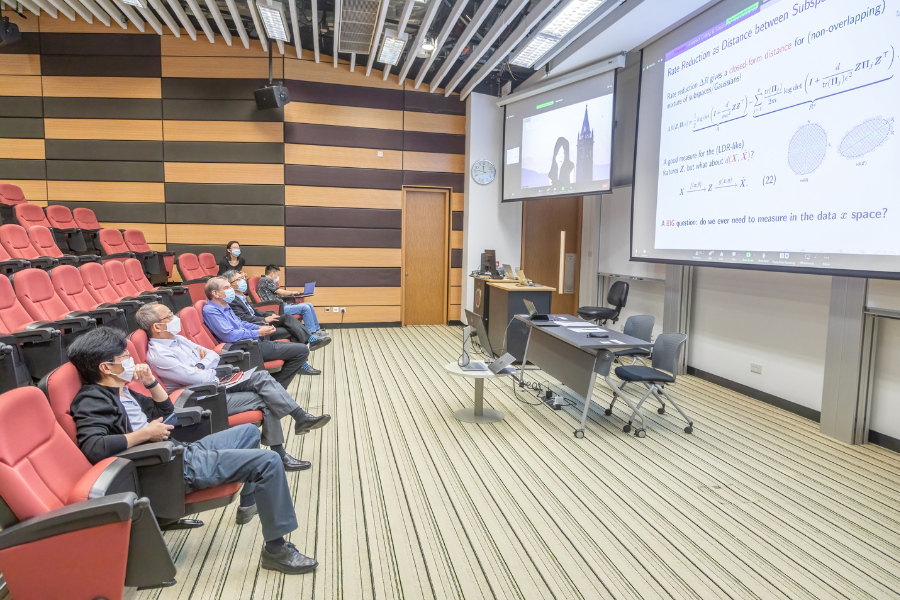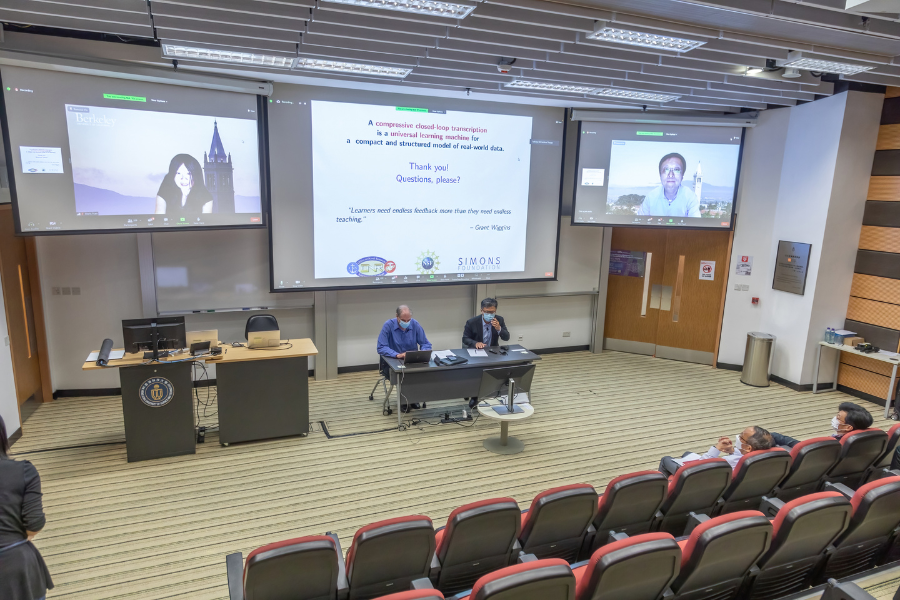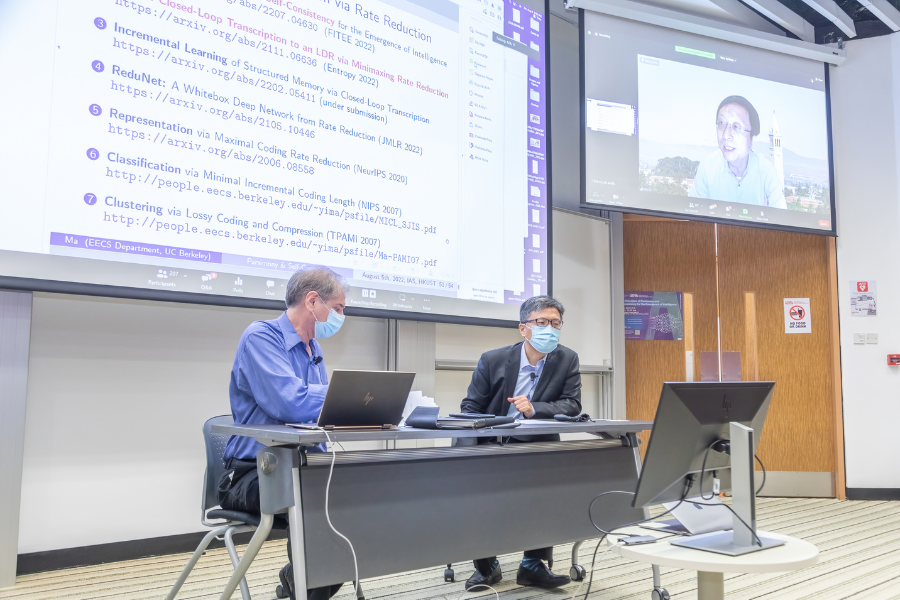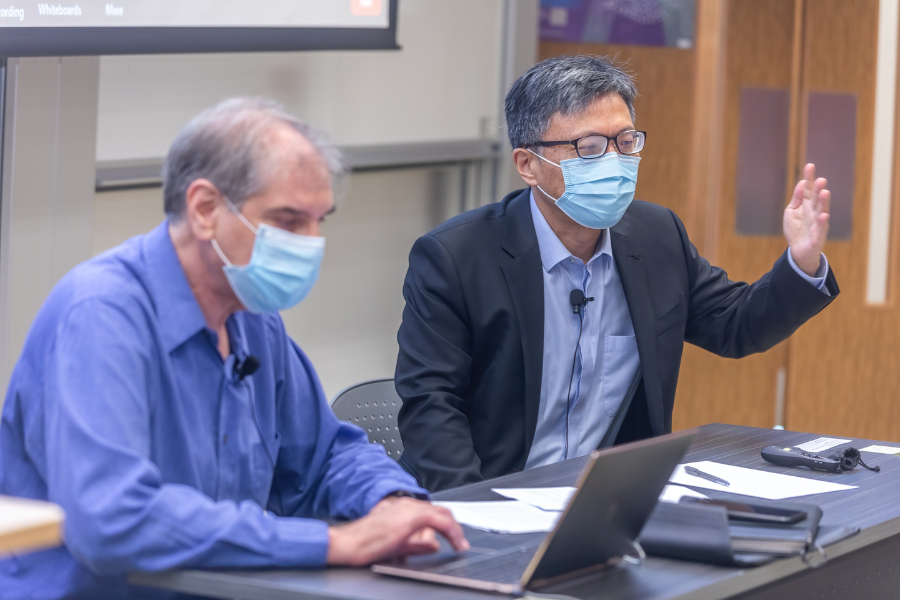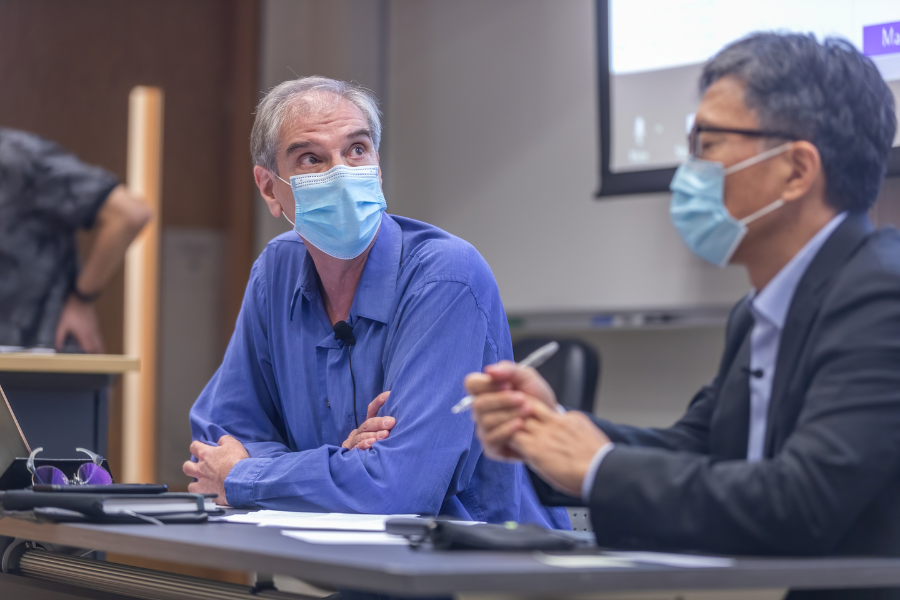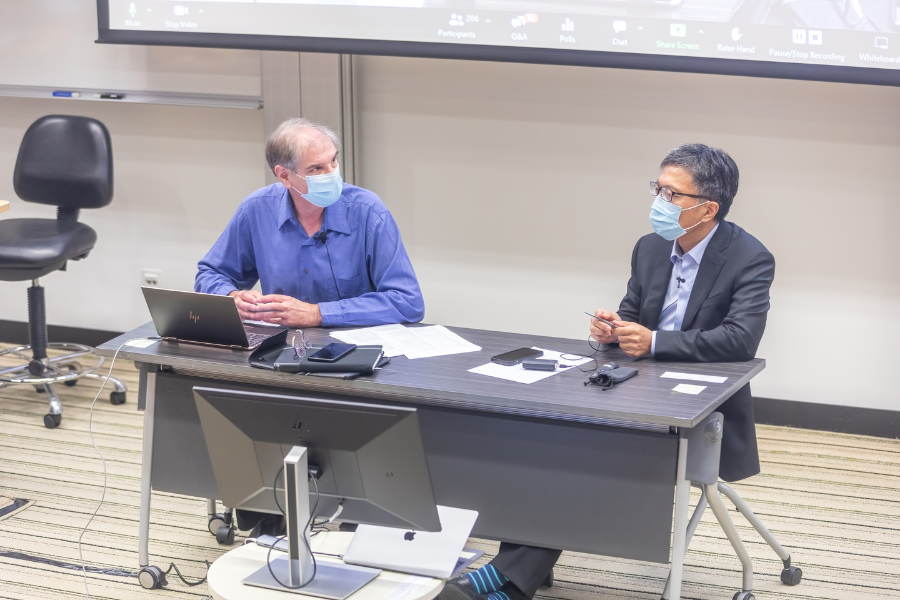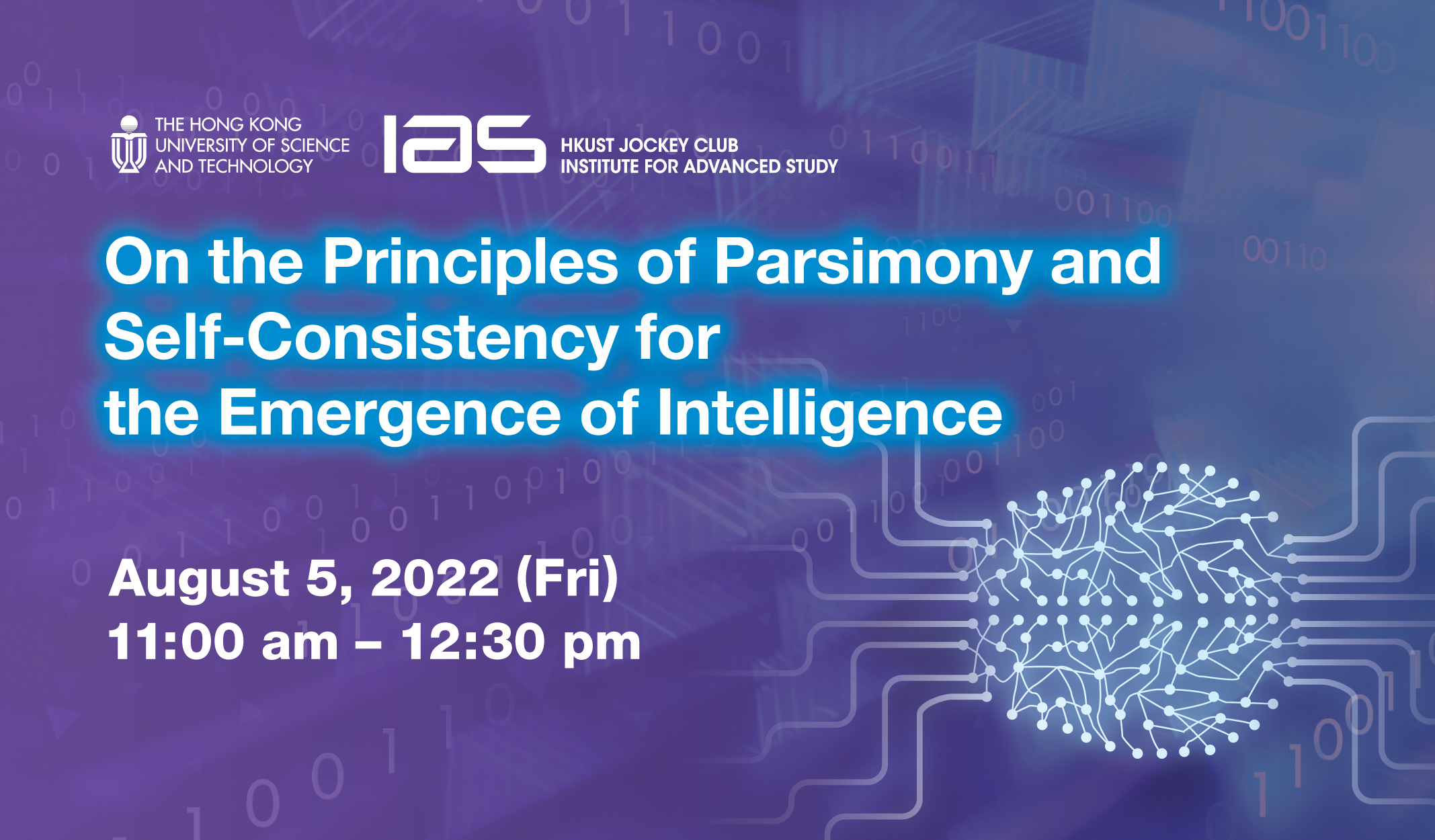On the Principles of Parsimony and Self-Consistency for the Emergence of Intelligence
Mode of Event:
-
In-person: Register on or before August 4, 2022 (Thu), 17:00 [HK Time] at https://ias.hkust.edu.hk/IAS-Round-Table-Discussion/20220805/register. Limited seats will be allocated on a first-come-first-served basis.
-
Zoom (NO registration is required): https://hkust.zoom.us/j/98055880434 (Meeting ID: 980 5588 0434 / Passcode: 20220805)
Overview
In this talk, we propose a theoretical framework that sheds light on understanding deep networks within a bigger picture of Intelligence in general. We introduce two fundamental principles, Parsimony and Self-consistency, that address two fundamental questions regarding Intelligence: what to learn and how to learn, respectively. We believe the two principles are the cornerstones for the emergence of Intelligence, artificial or natural. While these two principles have rich classical roots, we argue that they can be stated anew in entirely measurable and computable ways. More specifically, the two principles lead to an effective and efficient computational framework, compressive closed-loop transcription, that unifies and explains the evolution of modern deep networks and many artificial intelligence practices. While we mainly use modeling of visual data as an example, we believe the two principles will unify understanding of broad families of autonomous intelligent systems and provide a framework for understanding the brain.
Speakers
-
Harry SHUM (HKUST; IAS Professor-at-Large)
-
Yi MA (University of California, Berkeley) [Presentation Slides: On the Principles of Parsimony and Self-Consistency for the Emergence of Intelligence]
(Please obtain the consent from the speaker concerned for any adaptation/sharing of his presentation materials.) -
Doris TSAO (University of California, Berkeley)
Moderator
-
Andrew COHEN (IAS Director, IAS Professor and Lam Woo Foundation Professor)
Campus Access Control and Disease Prevention Measures
-
To enter the campus for this event, non-HKUST members who have signed up as Friends of HKUST via the event registration form will be registered as “visitors” by the event organizer to the University for their easy access thru the campus gates.
-
Except for exempted persons, all visitors entering the venue must comply with the ‘Vaccine Pass’ arrangements and other requirements under Cap.599F (See https://www.coronavirus.gov.hk/pdf/vp_ac.pdf)
-
Audience will be required to take temperature check at the entrance of the venue. Those with fever and/or upper respiratory tract infection (URTI) symptoms will be denied for entry.
-
Audience must properly wear a mask covering their nose and mouth at all times in the venue.
-
Audience should follow seating instruction imposed by onsite staff as special seating arrangements and capacity control will be implemented.

